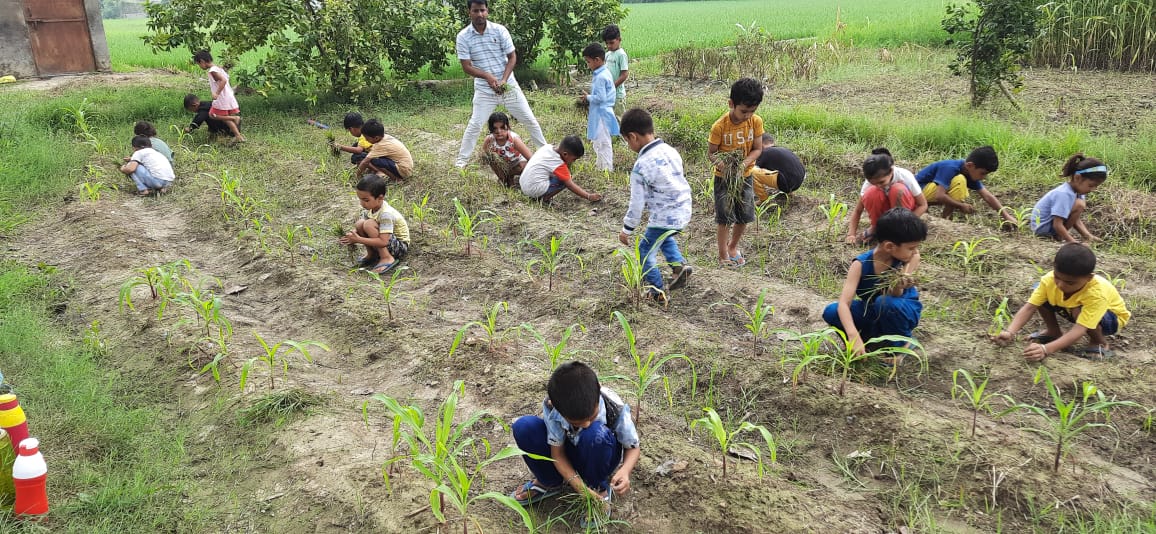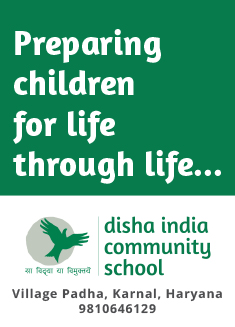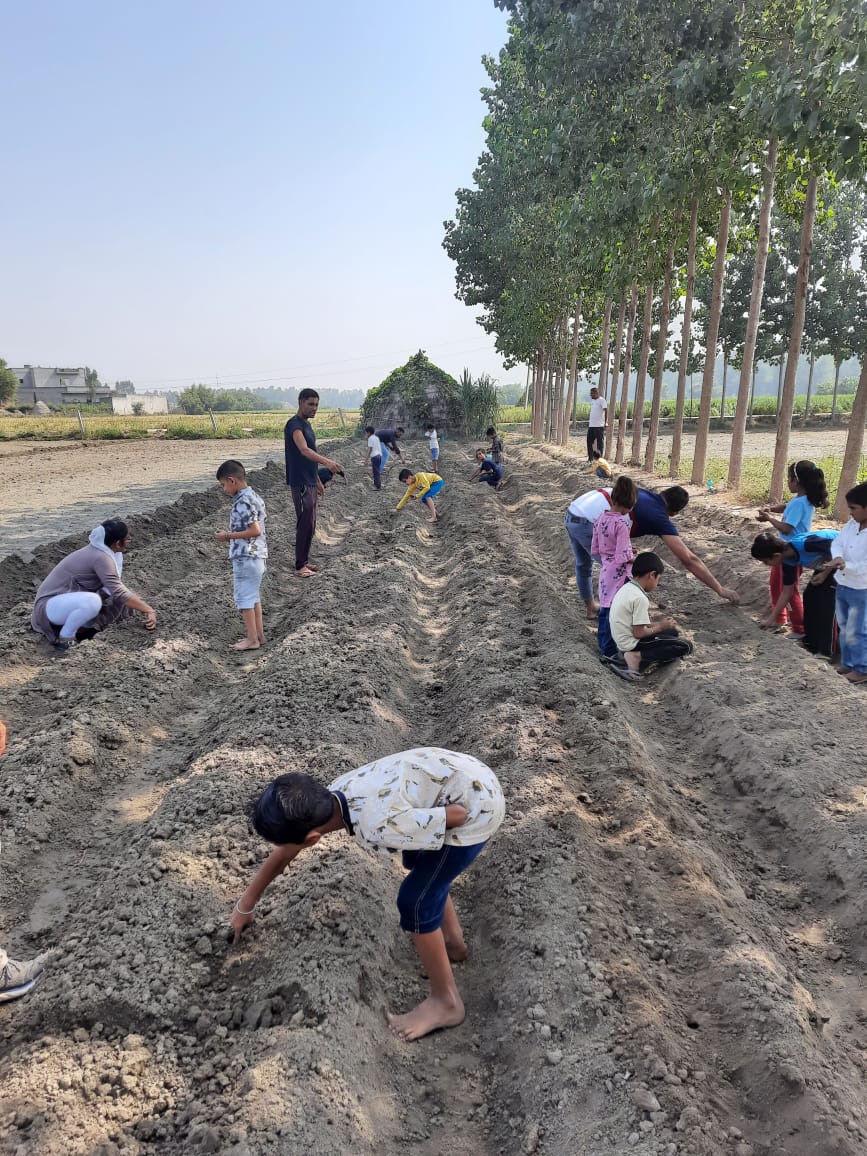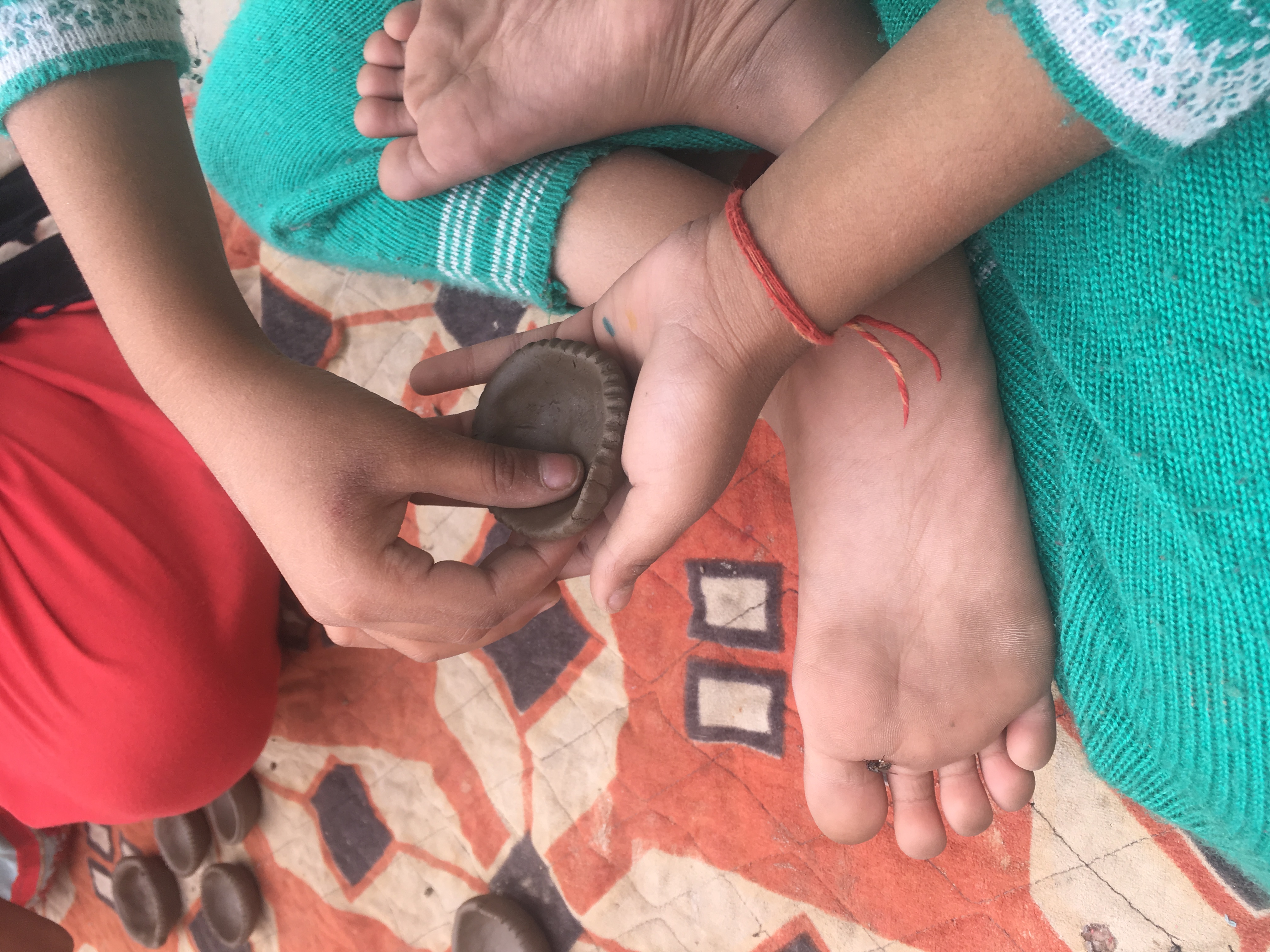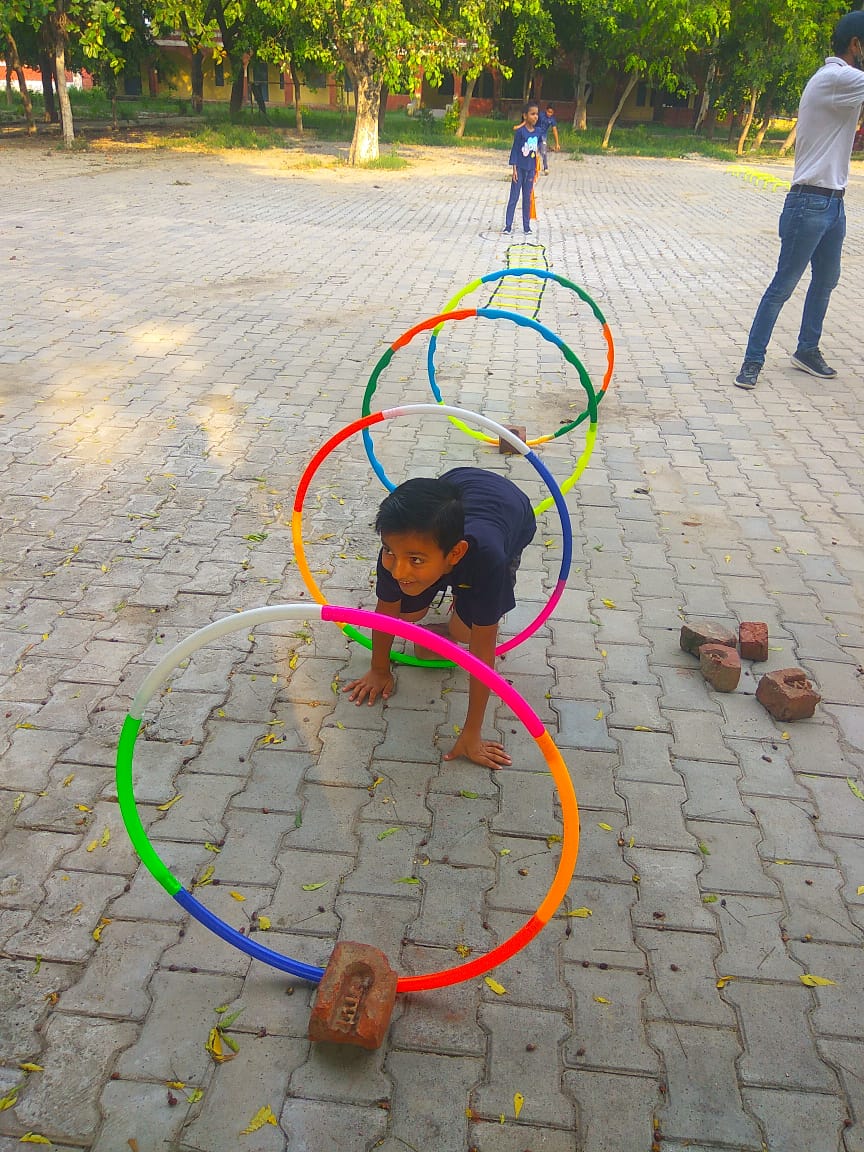Disha India Community School is an Experiential Learning school where we use real-life experiences from the local context of the child, as a pedagogic medium for teaching the required curriculum, skills and values. The vision is to create an innovative model of school education where the community takes a shared ownership for providing quality,contextual, personalized and equal education for all children at an affordable price. The idea is to demonstrate how a community can design its own education program based on its context, challenges, aspirations and possibilities, so that education is rooted in the local context and prepares children for a future that the community aspires for.
Disha India Community School, an initiative of Disha India Education Trust, was started in year 2020. The school is in village Padha, district Karnal, Haryana. At present, we have grades Nursery to Four and will add one grade every year. We have 100 students till grade 4 and eight educators.
Values that guide our school are:
- Experiential Education. It is an Experiential Learning school where we use real-life experiences from the local context of the child as pedagogic medium for teaching and learning the required curricular concepts, skills and values. The idea is to truly design a contextual and personalized learning for children and we believe that Experiential Learning in the local context has the potential to be a truly personalized learning.
- Shared vision and collective responsibility. We aspire to build a shared vision and responsibility with parents and community members. There is an Education Leadership Team (EL Team) that comprises parents and community members and it works in collaboration with the school management to realize the shared vision. The EL team is a microcosm of the village community.
- School is open to all children of the village. No child is refused admission in the school irrespective of financial, social and gender differences.
- No withdrawal of profits. The Trust is committed to not withdraw any profits from the school
- Complete Transparency. There is complete transparency in managing the funds and resources of the school and the annual budget, balance sheet and monthly expenses are shared with the EL team and parent community on a regular basis.
- Self-sustaining. The school aspires to be financially self-sustaining in the long run.
- Strengthening the village government school. Disha India aspires to support the village government school in improving the quality of education, so that all children of the village get quality and equal education. This we plan to achieve through teachers’ capacity building, sharing of learning resources, strengthening sports, arts and crafts, culture, etc.
Learning design principles that guide our teaching and learning:
1.Contextual and Personalized education
The education is seeded in the local ecosystem of the place. We use local experiences as the context and pedagogic medium for teaching the required curriculum. The idea is to connect the teaching and learning to the immediate surroundings of the child. We go from near to far, concrete to abstract…It is not only about making the education contextual but also personalized by designing the learning processes around the personalized experiences and life of the child.
In twelve years of education, children should develop a deep systemic understanding of their local ecosystem and Self and this understanding should be developed not just through cognitive pedagogies but through experiencing and doing. The idea is to immerse the whole being of the child in the learning process.
2.Productive Work
We use productive work (from the local context) as a pedagogic medium for teaching and learning the required knowledge, skills and values. In our context, it is primarily farming - we use natural farming as the pedagogic medium. The idea is not to prepare children for the vocation but to use it as a pedagogic medium. It not only leads to a better understanding of the curriculum and local context but also develops a creative and abundance mindset. More importantly, it leads to the balance of head, hands and heart in the learning process. We believe that the mind learns through hands. Doing quality work helps children experience and understand the value of craftsmanship, excellence and self-reliance.
3.Free and Integral child
The big idea is to focus and develop the whole being of the child - physical, emotional, cognitive and spiritual. The education process should liberate the child from limiting beliefs and structures. During his/her school education, the child should develop a good understanding of Self and also of the process of self-awareness and self-development - the idea is to experience what it takes to be an attentive, reflective and discriminative being. We aspire to help children on the journey of self-awareness and empowerment leading to a free and integral Soul.
